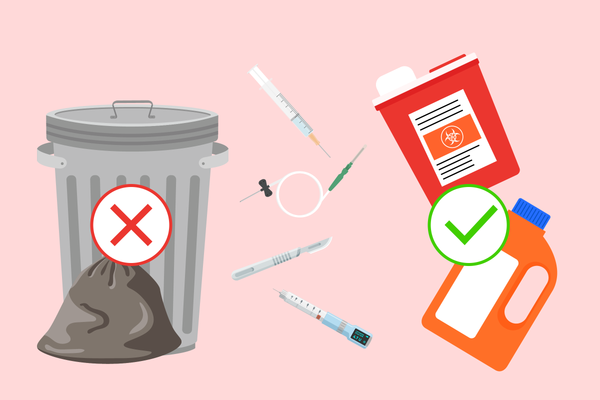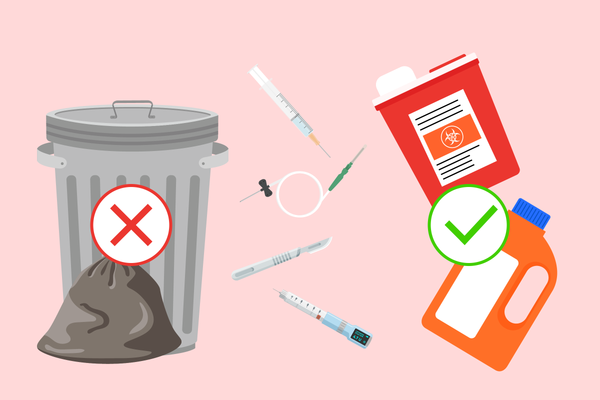When my grandmother was alive, she always kept a neatly folded piece of paper in her wallet. It contained a list of all the medications she took. I remember looking at it one time and being shocked at the sheer length of the list.
Since my grandmother lived into her nineties, I can only assume that some of these medications helped keep her alive. Still, it begs the question: Would she have benefitted by not taking some of them? Might some of the medications have been unnecessary or even harmful to her health?
MORE: Facts to Know About Medication Safety
Those questions have no answers now. But what is known is that there is an overprescribing trend in this country. The average American fills 12 prescriptions each year, with 40 percent of adults over 60 taking five or more drugs.
It's easy to get caught up in the medication whirl, which makes it even more important to know your prescriptions. We live in a culture of quick fixes. Patients, in search of a "cure," often push for a pill or a shot. And health care providers, in their desire to help, might not want to turn them down. They may fear disciplinary action by their local medical board or even a malpractice suit.
Clouding the issue even more are advertisements promising the newest miracle drug, plus a crowded, rushed health care system that makes it more time-efficient for a doctor to write a prescription than to sit down and discuss the possible side effects or alternatives.
Sure, medications treat problems. But the flip side is that they can also cause problems. It's a fine balancing act of benefits and harms that can be difficult to tease out. It's not uncommon for patients to be treated for various conditions and end up with multiple prescriptions simultaneously from different specialists. And then, things can easily spiral out of control, with dangerous drug interactions occurring.
Before too long, you're (still) not feeling well (or even feeling worse)—but rather than blaming the health condition, you might want to blame the medication.
Here's an example of how easily and quickly things can go wrong.
You take a popular antidepressant; you also take a cholesterol medication. The combination can cause dizziness or seizures. Although the dizziness or seizures is a drug side effect, it ends up being treated with yet another medication. Before you know it, the side effects of each drug are being treated with a new drug.
That's how people can end up taking upward of 10 or even 20 medications, known as "prescription cascade."
A little while back, I spoke with Armon Neel, PharmD, a geriatric pharmacist in Griffin, Georgia, and author of Are Your Prescriptions Killing You? (Simon & Schuster, 2012), who told me about a woman, confined to a wheelchair, who was on 29 different drugs. "Each drug led to a side effect, which was treated with yet another drug. After careful analysis, she now takes just three medications and is out of her wheelchair," he said.
Neel also pointed out that sometimes the risks of a drug can start to outweigh the drug's benefits. For example, as you age, your kidneys become less efficient at clearing drugs from your body. Certain medications, like tranquilizers, can build up to toxic levels, leading to drug-induced sedation, which can then lead to dizziness and falls.
MORE: Life as a Balancing Act
"A drug that works at 25 may not work at all or may cause a lot of interactions at 60," Neel said. You have to know the chemistry and physiology of the individual patient, he explained.
While growing older might mean the need for more medications, here's how you can be a savvy patient and manage your needs.
The next time your doctor pulls out a prescription pad, ask the following questions:
- Why is this being prescribed?
- What exactly is this medication for?
- What are the most likely side effects? And what are the rare but more dangerous ones?
- What is the best way to take the drug—with or without food, for example?
- Could the medication interact harmfully with over-the-counter medications, dietary supplements, certain foods or alcoholic beverages?
- If I decide to stop this medication, can I stop taking it all at once or do I have to taper off? (For example, some blood pressure medications, if stopped suddenly, can cause a sharp rise in blood pressure or other dangerous "rebound" effects.)
- Are there other nondrug therapies (like diet modification or exercise) that might be appropriate?
MORE: Get a Brown-Bag Checkup
In addition, like my grandmother did (and now I do, as well) keep an up-to-date list of your current medications and their dosages with you at all times, and show it to any physician prescribing a new medication. Don't assume your doctors are in communication with one another about all the medications you might be taking.
Finally, it's a good idea to fill your prescriptions at the same pharmacy and ask your pharmacist any questions you might have. A good one: "How safe is this medication and what should I watch out for?" Often the pharmacist is the best point person because they're the last stop before the prescription hits your hands.







